Copper Lion Coin Vareities
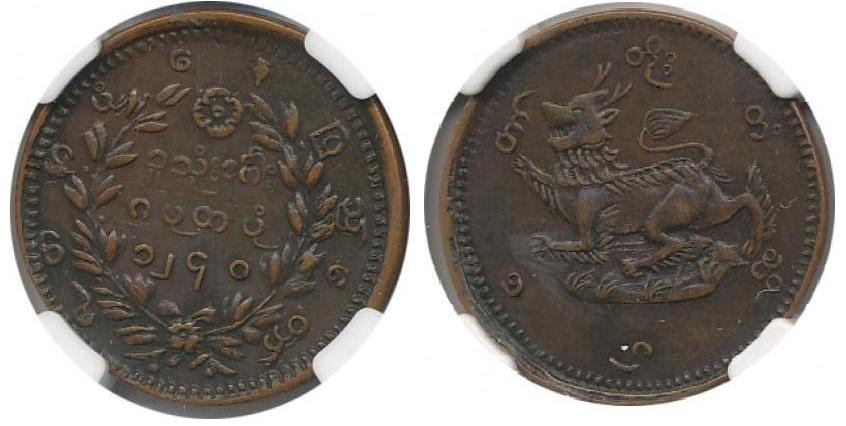
The copper lion coins are divided into 2 varieties on the SCWC catalogue, namely Km25.1 and Km25.2. In “The Coins and Banknotes of Burma”, it is 11.17, which is divided into type 1, 2, 3, 4a, and 4b according to the 6 o’clock position pattern on the reverse side. They are the further classified by the number of berries on the reverse side. These differences combined to provide wide types of varieties. In “The Die Varieties of 19th Century Burmese Copper Coins”, the antlers of the lion on the obverse side are subdivided into type A, B, and C. It can be known that there are many varieties of copper lion coins.
I will not further discuss the obverse side as it is quite similar for the variety A, B, and C. The main difference for classification is the pattern at the 12 o’clock position on the reverse side, whether the rosette is a “十” or an “X”. Whether there is “$” on top of it. The data summarized as the following (i only provide the number of coins found in my database):
| Image | SCWC | The Coins and Banknotes of Burma Varieties | Rosette on the reverse | Number of leaves | Stalk on berries | Number of Coins Found with Detailed Content |
|---|---|---|---|---|---|---|
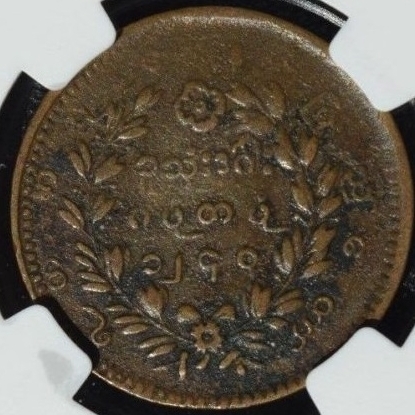 |
Km25.1 | 1 | 十 | 60 | with stalk | 16 |
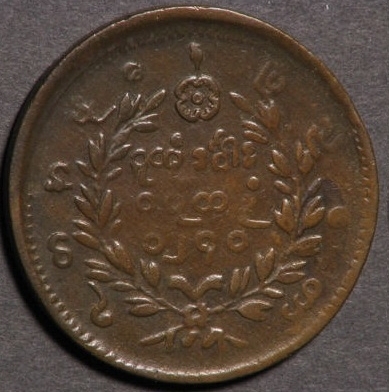 |
Km25.2 | 2 | X has $ on top of it |
52 | with or without stalk | 3 |
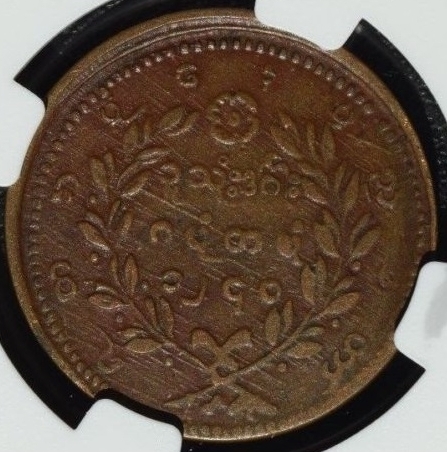 |
Km25.2 | 3 | X | 40 | no stalk | 30 |
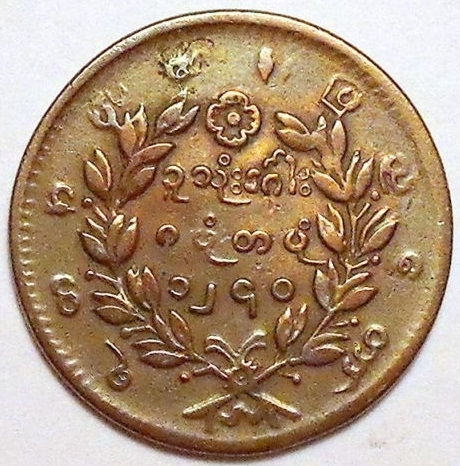 |
Km25.1 | 4a | 十 | 40 | with stalk (may be short or long) |
18 |
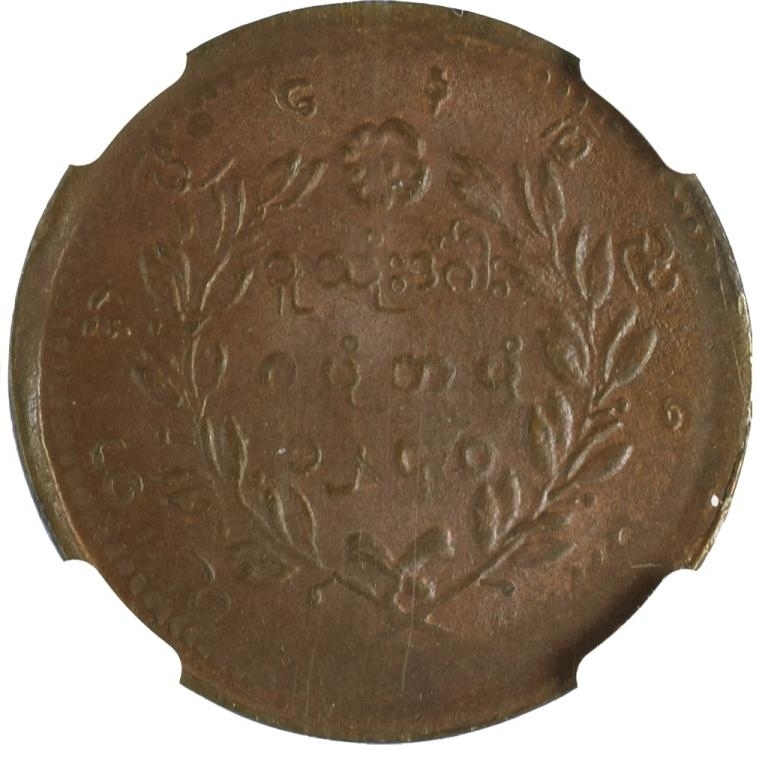 |
Km25.2 | 4b | X | 40 | with stalk | 38 |
Among the copper lion coins, variety 2 is relatively rare, and the situation is the same as that described in the “The Die Varieties of 19th Century Burmese Copper Coins”. Variety 3 found that there are “十” rosette, the number is not much (4) similar to that of variety 2.
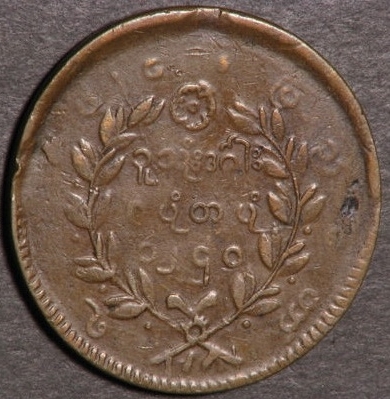
The “十” rosette varieties are rarer than of the “X” varieties, that is, Km25.1 is rarer than Km25.2.
Precautions:
- Many copper lion coins are severely worn, and it is inevitable to misread the details, which is highly subjective.
- There are many subtle differences in copper lion coins, and only the large differences are selected for discussion in this article.
- The data collection focuses on the good grade of the coins, and so there is a large deviation from the actual facts.